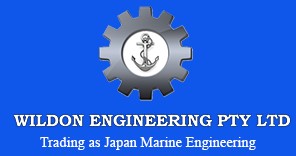How to Prolong the Service Life of Your Marine Diesel Engine?
Blog | April 27th, 2022Boats and ships can only function if they possess well-maintained marine diesel engines. Serving as the heart of these marine vessels, marine diesel engines work by converting heat into the mechanical energy necessary to conduct various processes.
A marine diesel engine can start its operations if it is injected with fuel. The fuel is then mixed with air before compressing them inside the engine cylinder. Their mixture leads to an explosion, releasing heat that boosts the pressure of the burning gas. The pressure increase of the gas subsequently pushes the piston downwards, providing transverse motion into the crankshaft’s rotary motion. The explosion inside the engine repeats continuously, ensuring that the boat or the ship attains all its needed power. The used gases are then released through an exhaust valve.
Assessing and maintaining the marine diesel engine of your boat and ship can ensure that your marine vessel can work and operate optimally. Here are some things that you can do to maintain and even prolong the service life of your marine diesel engine.
Let the Engine Run
Your marine diesel engine has been designed to last for a specific amount of time. However, if you do not use your marine vessel regularly, the performance of your marine diesel engine and even other boat elements may be severely affected. Running your marine engine regularly can ensure that its parts and components will not get stuck or deteriorate due to negligence. You may be surprised at how long your marine engine can last when you utilise and run it all the time.
Warm the Engine Up
Just like other components of your marine vessel, your engine should be warmed up first before conducting other activities. An engine utilised at a maximum level right at the very start of your marine vessel operation will only diminish its service life. When putting your boat in the water, you must crank the marine diesel engine and increase its power slowly for it to warm up gradually. Doing this ensures that your engine components will not wear out ahead of their expected lifespan.
Conduct Flushing
Flushing the engine is vital as it can prolong its lifespan. Since your marine vessel will mostly be exposed to saltwater, the particles associated with this type of water can be destructive to your engine. As saltwater particles accumulate on your engine, it can eventually lead to erosion, hindering your marine vessel from performing optimally during your sail. Flushing the engine can remove the particles that could cause erosion and other costly yet devastating damages.
Resolve Small Issues
You might come across a funny smell or a loud noise when starting your engine. You may think they will not lead to a major problem. However, ignoring them will only make things worse. Without immediate assessment, minute issues like these might end up causing major problems such as damaged or broken impellers, old antifreeze, a loose belt, clogged mufflers, loose alternators, and blown fuses. Resolving small issues right away can ensure that your marine engine will last for a long time.
If you need help with your marine diesel engine, you can call us at Wildon Engineering.
Optimized by NetwizardSEO.com.au
Recent Posts
- Yanmar Marine Compressors: Applications in Engine Starts, Valves, and Safety Systems
- Water vs Oil in Stern Tube Bearings: The Cost & ESG Truth Shipowners Can’t Ignore
- Yanmar Turbochargers: How Correct Spec-Matching Supports Lower SFOC and Prevents Surge
- Yanmar Diesel Generators: Planned vs Predictive Maintenance Strategies for Remote Operations
- Mareflex SOLAS Marine Tapes: Safety Applications on Marine Vessels
- Yanmar Propulsion Systems: FPP vs CPP Propellers for 6EY and 6N Series Fuel Efficiency
- Mitsubishi K.K. Purifier Separator: The Key to Cleaner Fuel and Smoother Operations
- Kemel Air Seal Retrofits: Leak-Free Stern Tube Seals and Reduced Lube-Oil Risk
- Yanmar Auxiliary Generators: Sizing for Reefers, Hotel Loads, and Dynamic Positioning Systems
- Water Lubricated Stern Tube Bearing (EVR): Proven Technology for Smooth and Quiet Operations
